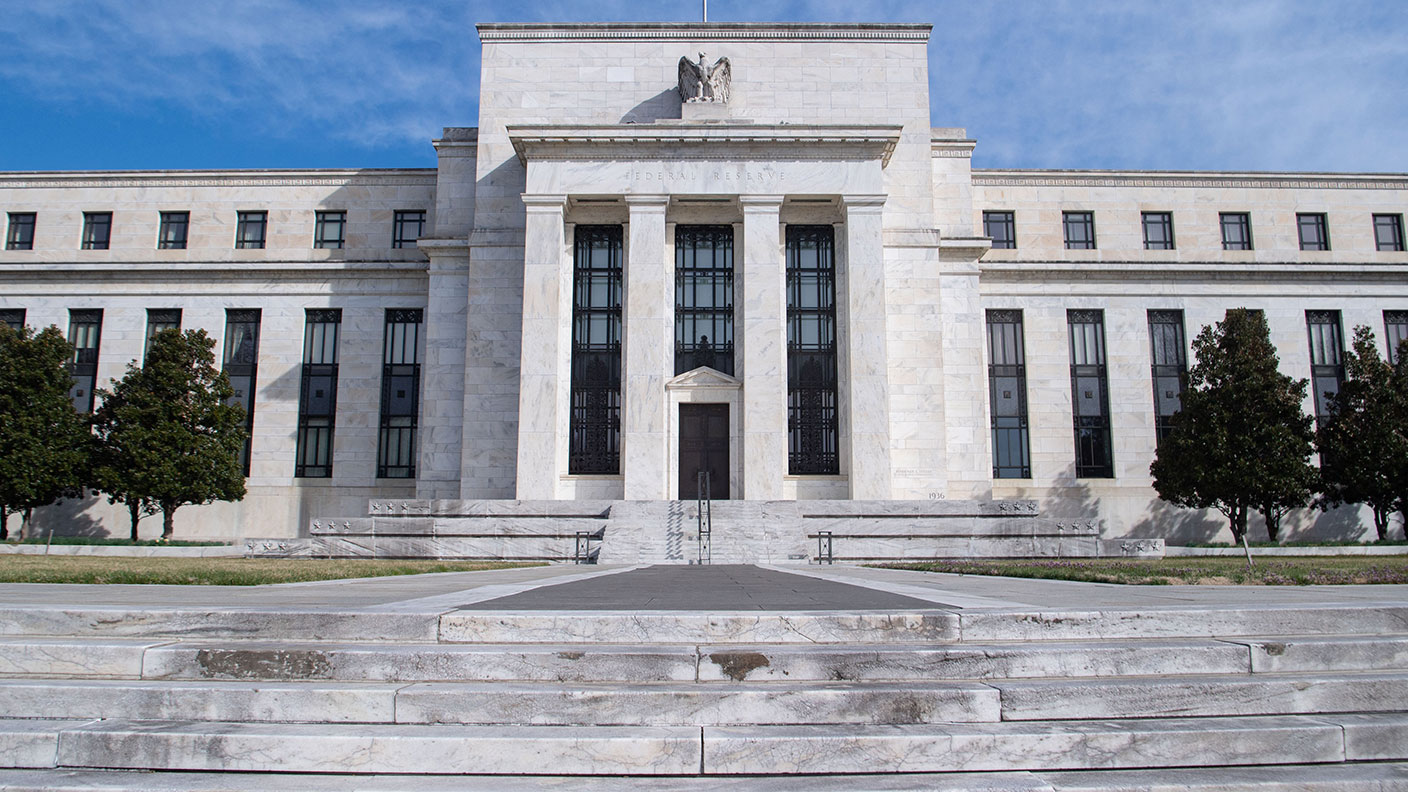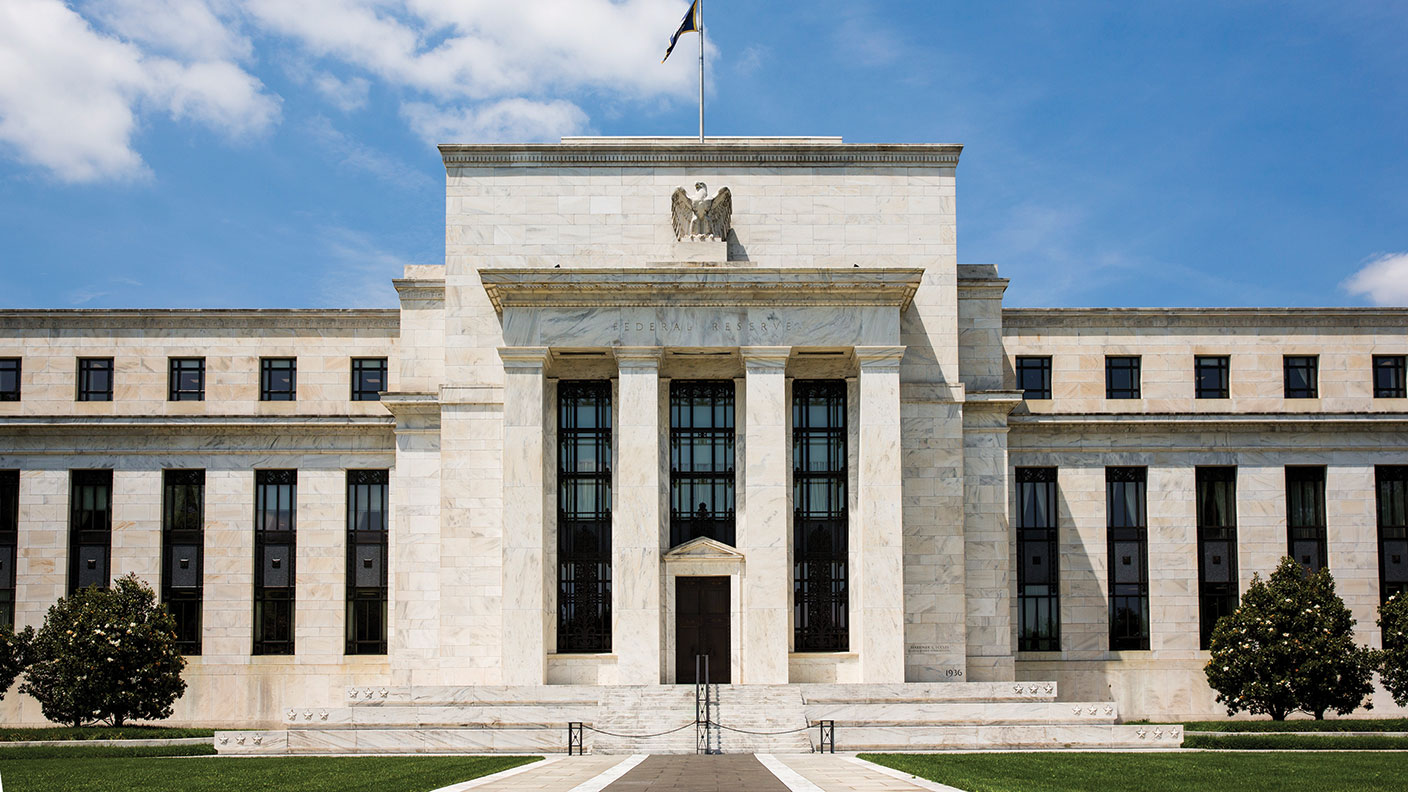Financial calendar – what to expect in the week of 2-6 May
A selection of economic events to watch out for in the coming week, including a decision from the Federal Reserve on raising US interest rates, and German retail sales figures.


Get the latest financial news, insights and expert analysis from our award-winning MoneyWeek team, to help you understand what really matters when it comes to your finances.
You are now subscribed
Your newsletter sign-up was successful
Want to add more newsletters?

Twice daily
MoneyWeek
Get the latest financial news, insights and expert analysis from our award-winning MoneyWeek team, to help you understand what really matters when it comes to your finances.

Four times a week
Look After My Bills
Sign up to our free money-saving newsletter, filled with the latest news and expert advice to help you find the best tips and deals for managing your bills. Start saving today!
Hello and welcome to the start of the week,
Next week is a moment that many market watchers have been anticipating: the US Federal Reserve, America's central bank, is widely expected to raise interest rates by half a percentage point on 3 May.
It comes after the Fed raised interest rates by 0.25 percentage points last month, up from near zero. The half a percentage point interest rate rise – which will almost certainly go ahead – would mark the first time since 2006 that the Fed has raised the policy rate at consecutive meetings.
MoneyWeek
Subscribe to MoneyWeek today and get your first six magazine issues absolutely FREE

Sign up to Money Morning
Don't miss the latest investment and personal finances news, market analysis, plus money-saving tips with our free twice-daily newsletter
Don't miss the latest investment and personal finances news, market analysis, plus money-saving tips with our free twice-daily newsletter
The last time the central bank raised interest rates by as much as half-point increase was in 2000.
Interest rate rises
The meeting is also likely to mark the start of quantitative tightening, in effect a reversal of quantitative easing when the central bank is expected to curtail its $9trn asset portfolio
The expected rate rise comes amid a resurgence of Covid cases in China, and Russia’s war with Ukraine, which are already causing supply chain issues and a sharp rise in the price of goods.
Other Fed presidents have also raised the spectre of more aggressive rate rises. While markets are expecting 0.5 percentage point rises at each of the next Fed’s three meetings, some market watchers even think a 0.75 percentage point rise may be underway.
If the expected rises do happen, then that could take the Fed’s key rate to as high as 2.25%.
Markets are also widely anticipating the UK to raise interest rates at a 5 May meeting, alongside the publication of the Bank of England’s Inflation Report as purchasing managers are expected to confirm that prices are still rising sharply.
The central bank raised its key Bank Rate by 0.25 bps to 0.75% last month at its March meeting. The rate rise marked the central bank’s third consecutive rise in interest rates and took the rate back to pre-Covid levels. Events such as Russia’s invasion of Ukraine is likely to further drive asset prices, and inflation is expected to be at least 8% in Q2 2022.
Other economic data
Purchasing managers data (PMIs) for the eurozone across both services and manufacturing is due next week. While the reading for the services sector is expected to show that the services sector is expanding, the eurozone manufacturing purchasing managers’ index is expected to contract from the previous reading.
Elsewhere, both month-on-month and year-on-year German retail sales data is also coming out next week. According to estimates by Trading Economics, retail sales are expected to rise by 1% by the end of this quarter. German retail sales rose 0.3% in February, marginally missing a forecast of an increase in 0.5% in January. Retail trade recovered in the first few months of 2022 after turnover fell in December, but the sector is still continuing to recover from pandemic restrictions.
Some key events to watch next week
Monday
- German Retail Sales data for March for (MoM) and (YoY) are due.
- Eurozone unemployment rate figures for April are due.
- Eurozone manufacturing purchasing managers’ index (PMI) for April is due.
Tuesday
- China markets are shut for Labour Day on 3 May.
- UK Manufacturing PMI for April is due.
- German unemployment data for April is due.
- Japanese markets are shut for a public holiday 3-5 May.
Wednesday
- The Federal Reserve’s interest rate decision is due.
- Eurozone Services Purchasing Managers Index (PMI) for April is due.
- Monthly and yearly European retail sales figures are due for April.
Thursday
- The Bank of England interest rate decision and inflation report is due.
Friday
- The US unemployment rate and April jobs report is due.
- US Nonfarm payrolls data is due.
Get the latest financial news, insights and expert analysis from our award-winning MoneyWeek team, to help you understand what really matters when it comes to your finances.
Saloni is a web writer for MoneyWeek focusing on personal finance and global financial markets. Her work has appeared in FTAdviser (part of the Financial Times), Business Insider and City A.M, among other publications. She holds a masters in international journalism from City, University of London.
Follow her on Twitter at @sardana_saloni
-
 Should you buy an active ETF?
Should you buy an active ETF?ETFs are often mischaracterised as passive products, but they can be a convenient way to add active management to your portfolio
-
 Power up your pension before 5 April – easy ways to save before the tax year end
Power up your pension before 5 April – easy ways to save before the tax year endWith the end of the tax year looming, pension savers currently have a window to review and maximise what’s going into their retirement funds – we look at how
-
 How a dovish Federal Reserve could affect you
How a dovish Federal Reserve could affect youTrump’s pick for the US Federal Reserve is not so much of a yes-man as his rival, but interest rates will still come down quickly, says Cris Sholto Heaton
-
 New Federal Reserve chair Kevin Warsh has his work cut out
New Federal Reserve chair Kevin Warsh has his work cut outOpinion Kevin Warsh must make it clear that he, not Trump, is in charge at the Fed. If he doesn't, the US dollar and Treasury bills sell-off will start all over again
-
 'Investors should brace for Trump’s great inflation'
'Investors should brace for Trump’s great inflation'Opinion Donald Trump's actions against Federal Reserve chair Jerome Powell will likely stoke rising prices. Investors should prepare for the worst, says Matthew Lynn
-
 'Governments are launching an assault on the independence of central banks'
'Governments are launching an assault on the independence of central banks'Opinion Say goodbye to the era of central bank orthodoxy and hello to the new era of central bank dependency, says Jeremy McKeown
-
 Do we need central banks, or is it time to privatise money?
Do we need central banks, or is it time to privatise money?Analysis Free banking is one alternative to central banks, but would switching to a radical new system be worth the risk?
-
 Will turmoil in the Middle East trigger inflation?
Will turmoil in the Middle East trigger inflation?The risk of an escalating Middle East crisis continues to rise. Markets appear to be dismissing the prospect. Here's how investors can protect themselves.
-
 Federal Reserve cuts US interest rates for the first time in more than four years
Federal Reserve cuts US interest rates for the first time in more than four yearsPolicymakers at the US central bank also suggested rates would be cut further before the year is out
-
 The Bank of England can’t afford to hike interest rates again
The Bank of England can’t afford to hike interest rates againWith inflation falling, the cost of borrowing rising and the economy heading into an election year, the Bank of England can’t afford to increase interest rates again.
